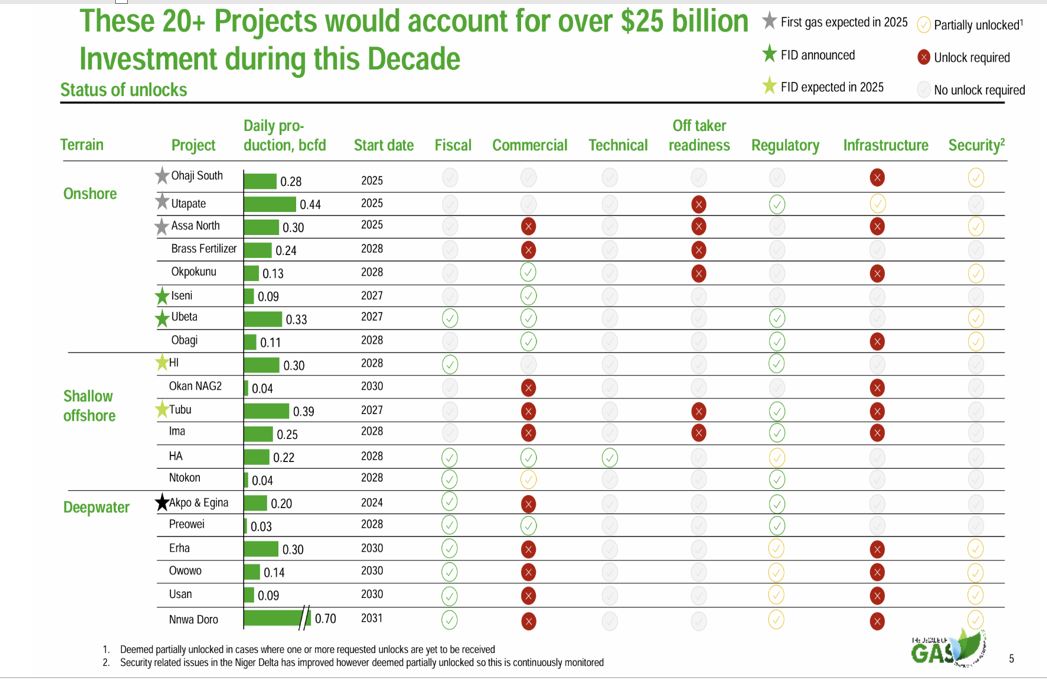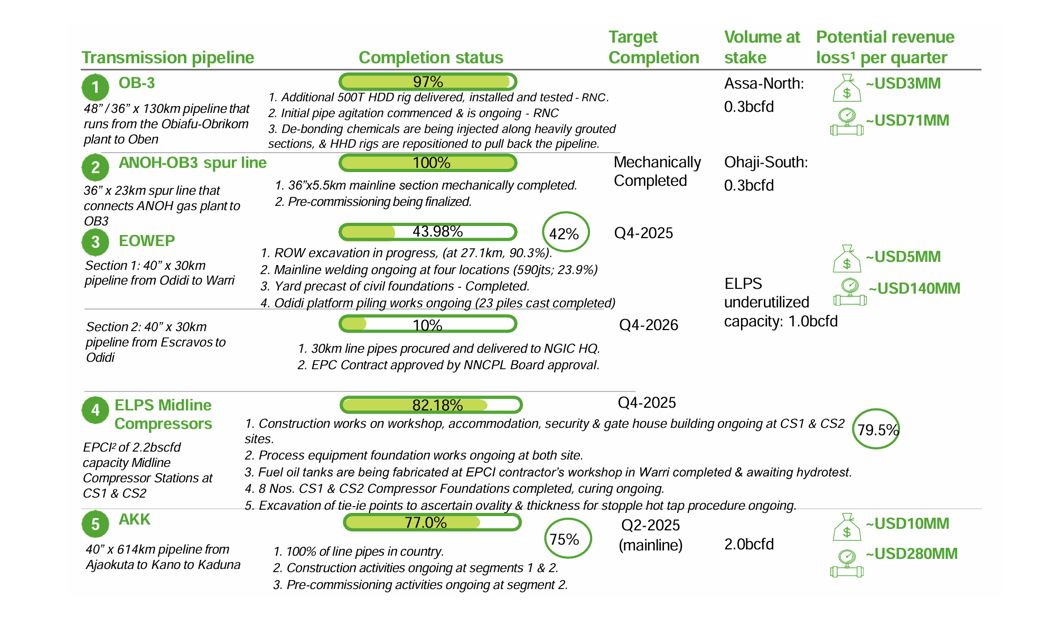…as Minister Ekpo charges gas-producing companies to boost production output.
By Ndubuisi Micheal Obineme
Nigeria aims to increase gas production by an additional 1 billion cubic feet (BCF) of gas annually, starting from 2025 to 2030. This move aims to support the country’s energy transition goals and put an end to routine gas flaring.
The Minister of State for Petroleum Resources (Gas), Ekperikpe Ekpo, made this known in a statement, obtained by The Energy Republic, at a high-level meeting between the ministry and upstream gas-producing companies on Monday 26 May 2025 in Abuja.
Today, Nigeria holds one of the largest natural gas reserves in the world, ranked among the 10 largest gas-producing countries in the world. According to the latest report from the Decade of Gas Secretariat, Nigeria’s proven natural gas reserves stand at 209.26 trillion cubic feet (TCF), with 600 TCF of unproven gas reserves. Despite the abundant gas reserves in the country, Nigeria’s gas resources are yet to be fully explored.
Speaking with the upstream gas stakeholders at the high-level meeting in Abuja, Minister Ekpo urged the companies to increase their gas production output to an additional 1 billion cubic feet to unlock Nigeria’s gas potential as well as support the country’s target of reaching 12 BCF of gas production per day by 2030, an increase from the current 7.3 BCF per day.
“We must increase natural gas production by at least 1 BCF annually through 2030,” said Minister Ekpo, according to a statement from the ministry, made known to The Energy Republic. “To do this, we need to step up drilling across all terrains—land, swamp, and offshore—and prioritize completing critical gas processing and evacuation infrastructure.”
Ekpo also highlighted the recent wave of divestments by major oil firms as an opportunity to unlock more production, both in Associated Gas (AG) and Non-Associated Gas (NAG). He called for a strategic approach that accelerates project timelines, upgrades existing facilities, and applies modern extraction and processing technologies.
The Minister underscored the importance of collaboration with international partners and technical experts, particularly in delivering key infrastructure projects such as the Ajaokuta-Kaduna-Kano (AKK) and OB-3 gas pipelines. These projects are vital to connecting Nigeria’s gas reserves with industrial and domestic consumers and achieving the nation’s vision of becoming a regional gas hub.
Commending the NNPC/TotalEnergies joint venture for eliminating routine gas flaring, Ekpo urged other operators to follow suit and transform flared gas into economic value, thereby reducing carbon emissions.
He also stressed the need for faster project delivery, better funding mechanisms, and public-private partnerships to overcome challenges in finance and technology.
Nigeria has set an ambitious target to become a gas-powered economy by 2030 through the ‘Decade of Gas’ program, launched by the Federal Government in 2021 under the administration of former president Muhammed Buhari.
Notably, the President Tinubu administration has also advanced the Decade of Gas program through the signing of Presidential Directives and the introduction of several initiatives to unlock Nigeria’s gas potential for economic growth and energy transition.
Nigeria’s Decade of Gas initiative represents a concerted effort by the government and private sector to leverage the country’s abundant natural gas resources for economic development and energy transition.
“Mr. President adopted the Decade of Gas initiative — a transformative framework aimed at catalyzing growth in Nigeria’s gas production and consumption sectors. This bold move signaled a commitment to leveraging Nigeria’s abundant natural gas reserves as a cornerstone for economic diversification and industrialization.
“Through this initiative, the government has sought to prioritize critical investments in infrastructure, streamline regulatory policies, and incentivize private sector participation in the gas industry,” the minister added.
Since the inception of the Decade of Gas program, the government has taken bold steps to unlock Nigeria’s gas value chain opportunities for energy prosperity.
The image below provides further information about the current state of the Nigerian gas sector:
Major Gas Investment Projects

Status of Gas Infrastructure




